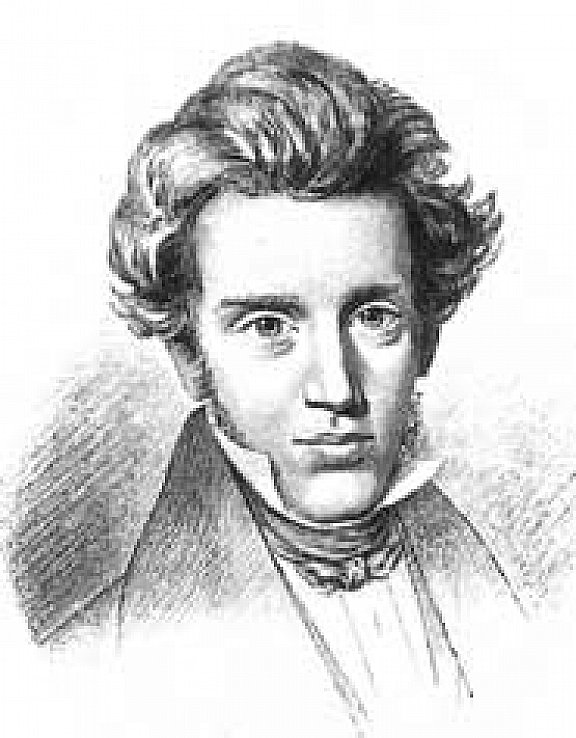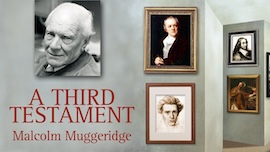Kierkegaard's Wit Made Christian Philosophy Memorable

How did Kierkegaard answer?
ON THIS DAY, 3 JULY 1840, a panel at Copenhagen University examined Søren Kierkegaard for his theological degree. Kierkegaard had studied hard, commenting that it was “scarcely possible to endure even for three years the severe study required for the professional examinations.” But he added that this “was not nearly as strenuous as half an hour with God.” We do not know what questions they asked him, but one suspects his replies were profound beyond his years.
His thesis was titled On the Concept of Irony with Constant Reference to Socrates. The examining panel found it thoughtful, but too informal and witty to satisfy university requirements. It was an indication of the tone that would characterize his many books.
Kierkegaard’s books, written under both his own name and pseudonyms, employed a dazzling array of literary techniques: irony, polemic, satire, writings within writings. All were aimed at forcing his readers out of superficial Christianity into a living faith. He wanted people to recognize that they stood in the very presence of the living God: “The abyss of eternity opens before you, the sharp scythe of the leveler makes it possible for everyone individually to leap over the blade—and behold it is God who waits. Leap, then, into the arms of God ...” For this reason, Kierkegaard is often credited with originating the phrase “leap of faith.”
Kierkegaard came from a gloomy home. His father, Michael, was malencholy (there are suggestions in the son’s work that Michael had cursed God as a young man) and had gotten a maid pregnant outside of marriage. He married the maid and prospered, but he lived with dread. He perceived the deaths of several of his children as punishment for his sins. Søren was one of two who survived to adulthood.
From his father Søren acquired a tendency to introspection, a melancholy not helped by seeing five of his siblings die young. He also lacked the courage to follow his heart, breaking an engagement with his fiancé Regina. Immediately afterward, he seems to have second-guessed his decision. Left lonely, he wandered the streets of Copenhagen, latching onto passersby for conversation.
Conversation with him could not have been light. He imagined the totalitarian horrors of the century to come and predicted the influence of television decades before it was invented. His thought developed into existentialism—a system that makes the individual’s choices and commitments the center of philosophy. Perhaps his failure of nerve with Regina taught him the need to throw oneself into God’s arms without hesitation.
At any rate, he explored questions few Christians consider. “Christ,” he said, “being an absolute, explodes all the relativity whereby we humans live.” Those are profound words one might expect from an aged Christian with long years of observation and experience behind him or her. Søren Kierkegaard was thirty-seven when he wrote them. Five years later, at forty-two, he died and faced the stiffest examination any human is called to pass.
—Dan Graves
----- ------ ------
Kierkegaard is one of the remarkable individuals featured in A Third Testament. Watch it at RedeemTV.
A Third Testament can be purchased at Vision Video.







